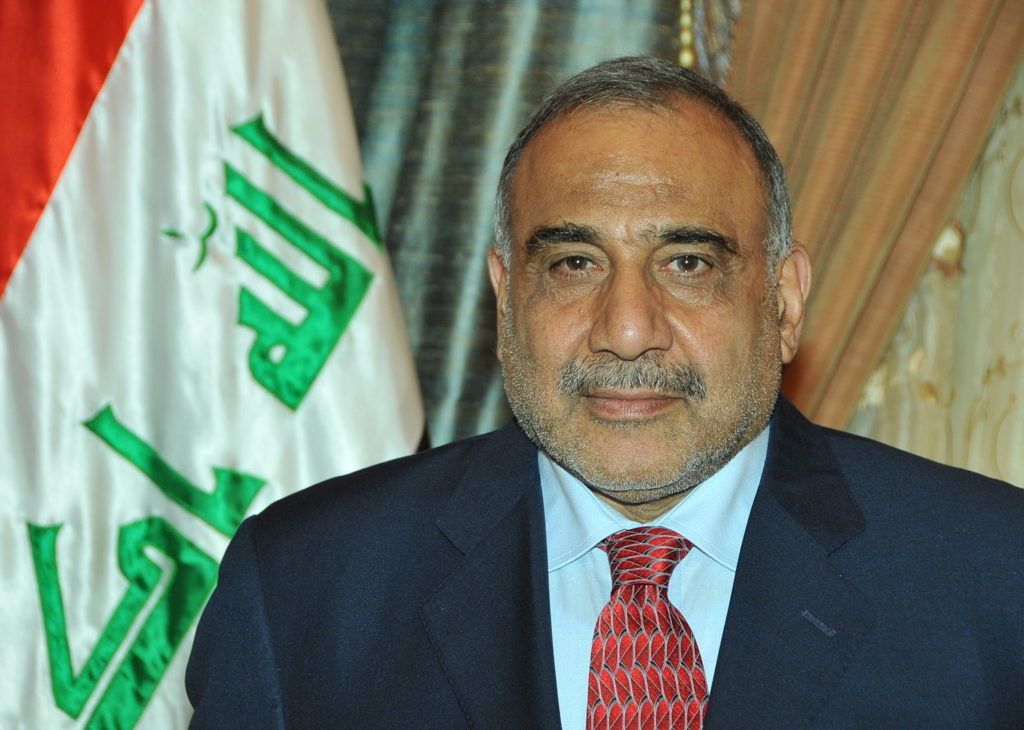Bush’s Ace in the Hole in Iraq?

 On Saturday, Iraq’s Prime Minister appointed nearly all of the cabinet that will serve in the first full-term government of post-invasion Iraq. While the Ministers of Defense, Interior, and National Security have yet to be named, at least one key post has been locked-in for over a month — that of Vice President Adel Abdul Mahdi.
On Saturday, Iraq’s Prime Minister appointed nearly all of the cabinet that will serve in the first full-term government of post-invasion Iraq. While the Ministers of Defense, Interior, and National Security have yet to be named, at least one key post has been locked-in for over a month — that of Vice President Adel Abdul Mahdi.
The re-appointment of Mahdi may yet provide the Bush Administration with its most important victory in the Iraq war since Saddam Hussein was pulled out of a rabbit hole in Tikrit. However, Mahdi’s Vice Presidency may also ultimately generate at least as much hostility towards the United States as the invasion itself.
Over the course of the war, Mahdi emerged as one of the most aggressive proponents of the Bush administration’s economic agenda for Iraq, including the implementation of controversial corporate globalization rules and greater U.S. corporate access to Iraq’s oil.
Although considered a religious moderate, Mahdi is a senior member of the Supreme Council of the Islamic Revolution (SCIRI), Iraq’s leading Shiite political party. An economist trained in France, Mahdi returned to Iraq on April 12, 2003 after 34 years of exile. He has since held key positions in each successive Iraqi government. Following the invasion, he represented SCIRI’s Abdel Aziz al-Hakim on the Iraq Governing Council assembled by L. Paul Bremer, the Administrator of the U.S. occupation government of Iraq. With the end of the formal occupation on June 28, 2004, Mahdi was named Finance Minister of the Bremer-appointed Iraqi Interim Government. After failing to win the position of Prime Minister by just one vote after the January 30, 2005 popular elections, Mahdi was appointed as a Vice President of the Transitional Government and now, Vice President of the Permanent Government.
As Finance Minister, Mahdi made at least two trips to Washington, DC in 2003 and 2004 during which he met with President Bush and Vice President Cheney. He emerged as the administration’s second choice for Prime Minister of the transitional government after Iyad Allawi.
On his first visit, in October 2003, Mahdi delivered a speech at the American Enterprise Institute, assuring his listeners that Iraq was making “a good start on a broad range of structural and legal reforms” to its economy. By “reforms,” he meant the new laws L. Paul Bremer put in place during his 14-month reign as U.S. administrator of the occupation government of Iraq, laws that Mahdi as Finance Minister was actively implementing.
The laws Mahdi listed in his speech included: expansive foreign investment rules long-sought by U.S. corporations, but so opposed by developing countries that they contributed to the collapse of two WTO ministerial meetings; 100% repatriation of profits earned in Iraq by foreign companies; 100% foreign ownership of Iraqi businesses, including banks; privatization of Iraq’s state owned enterprises; 100% immunity for U.S. contractors and soldiers from Iraq’s laws; implementation of a flat tax which reduced Iraq’s corporate tax rate by 25%; and “national treatment” which allowed for Iraqis to be all but excluded from the reconstruction for years while the U.S. government paid $50 billion to some 150 U.S. corporations for work in Iraq. These laws have, in turn, led to mass public protests in Iraq and increased opposition to the occupation and the Iraqi officials who support it.
On December 22, 2004, Mahdi returned to Washington and joined U.S. Undersecretary of State Alan Larson at the National Press Club. There he announced Iraq’s plans for a new Petroleum Law to open the oil sector to private foreign investment. Mahdi explained, “So I think this is very promising to the American investors and to American enterprise, certainly to oil companies.”
Under the proposed law, foreign companies would gain access to both “downstream” and “maybe even upstream” oil investment in Iraq, according to Mahdi. (“Downstream” refers to refining, distribution, and marketing of oil. “Upstream” refers to exploration and production.)
Because none of the economic laws discussed above apply to the exploration or initial processing of Iraq’s oil, the oil law was a radical proposal. It also mirrors proposals made two years earlier by the U.S. State Department’s Future of Iraq Project’s Oil and Energy Working Group.
The new Petroleum Law is reportedly set for implementation, but has been awaiting the formation of the four-year Iraqi government. According to the London-based research organization Platform, Iraq’s new Petroleum Law would open all of Iraq’s new oil fields to private foreign investment using Production Sharing Agreements (PSAs), giving private companies (which under current circumstances effectively means “foreign” companies) control of 64% of Iraq’s known reserves. If, as has been predicted, a further 200 billion barrels are found, private (foreign) companies could then control 87% of Iraq’s oil. None of the top oil producers in the Middle East use PSAs because they provide unnecessarily lucrative terms for foreign corporations at the expense of host governments.
To support completion of the Petroleum Law, the Bush administration recently appointed an adviser to the Iraqi government from Bearing Point Inc., a private consultancy firm based in Virginia. Two months prior to the invasion of Iraq, Bearing Point drafted a plan to rewrite Iraq’s economic infrastructure for which it later received a $250 million contract. Bearing Point’s plan, which included the stated need for “private-sector involvement in strategic sectors, including privatization, asset sales, concessions, leases and management contracts, especially those in the oil and supporting industries,” became the basis of Paul Bremer’s economic transformation of Iraq.
After several meetings with Condoleezza Rice and British Foreign Secretary Jack Straw during their visit to Iraq last month, Mahdi was reported to be the Americans top pick for Prime Minister. As with so many other aspects of the Iraq war, President Bush did not get all he had hoped for from the formation of the permanent Iraqi government.
However, if Mahdi continues to advance the U.S. economic agenda in Iraq with his past zeal, President Bush will definitely have something to celebrate.
U.S. oil companies, including Chevron and ExxonMobil, have been working with the Iraqi government and marketing Iraqi oil since the occupation began. Now that the full-term Iraqi government has formed, they will be in a perfect position to sign lucrative contracts if the Petroleum Law is enacted. But, they will need security to get to work. What better security force is there than 100,000 American soldiers?
I argue that it is this “oil time-line” which is now driving the war.
Nearly 80% of Iraqis cited in a recent poll by the Brookings Institution believe that the insurgents attack Coalition forces because they think the “Coalition is trying to steal Iraq’s wealth.” If these Iraqis are correct, then we all have much to fear.
